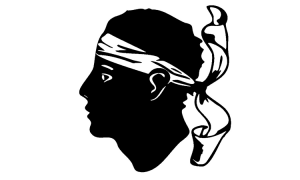Language/Corsican/Grammar/Plurals
Hi Corsican learners! 😊
In this lesson, we will learn about plurals in the Corsican language.
Introduction
In Corsican, plurals are formed in various ways depending on the gender and final consonants of the noun. Understanding plural formations can be complex, but it's an essential aspect of learning the language. In this lesson, we will break it down to make it easier.
Plural endings
Plurals are formed according to the final consonant of the noun in Corsican. There are three different endings for plural nouns:
Plural in -i
Nouns ending with a vowel will add the suffix -i. Here are some examples:
| Corsican | Pronunciation | English | ||||||
|---|---|---|---|---|---|---|---|---|
| chjuculu | /kyku'ly / | cherries | signura | /siɲu'ra / | ladies | capuccinu | /kaput'tʃinu/ | cappuccinos |
Plural in -a
Nouns ending with -u, -e or -o will have their final vowel changed to -a. Here are some examples:
| Corsican | Pronunciation | English | ||||||
|---|---|---|---|---|---|---|---|---|
| portu | /'pɔrta/ | ports | telefonu | /tele'fonu/ | telephones | pane | /'pane/ | bread |
Plural in -i/-a/-i/-e
Nouns ending with a consonant (excluding -r) will add the suffix -i/-a/-i/-e. This ending has a strong connection to Italian plural formations.
| Corsican | Pronunciation | English | ||||||
|---|---|---|---|---|---|---|---|---|
| oliu | /'olju/ | oils | latte | /'latte/ | milk | cumprera | /kum'prera/ | buyers |
Plural in -s
Nouns ending with -r, -l or -n will add -s. This ending is common in French plural forms but also used by Corsicans. Here are some examples:
| Corsican | Pronunciation | English | ||||||
|---|---|---|---|---|---|---|---|---|
| chjama | /'kjama/ | rooms | candelu | /kan'dɛlu/ | candles | pistaciu | /pi'statsju/ | pistachios |
Dialogue
- Person 1: Un buecu di formaiu, per piacè. (A piece of cheese, please.) - Person 2: Eccu, duie formaii per u signore. (Here are two cheeses for the gentleman.) - Person 1: Grazie, li cavaru à u supermercatu vicinu. (Thank you, I got them at the nearby supermarket.)
Exceptions
There are some nouns that do not follow the general rule of plural formation in Corsican. Here are some examples:
| Corsican | Pronunciation | English | ||||||
|---|---|---|---|---|---|---|---|---|
| ghjenti | /'dʒenti/ | people | fratelli | /fra'tɛl:ɪ / | brothers | peccerelle | /peʧɛ'rɛllɛ/ | prawns |
Practice
Let's practice plurals with the following words:
- tesori (treasures) - sapone (soaps) - pirulete (lollipops) - burriche (butterflies) - spagnolu (Spanish)
Conclusion
In this lesson, we have learned about the different ways to form plurals in Corsican. Remember that practice is key to mastering plurals. To improve your Corsican Grammar, you can also use the Polyglot Club website. Find native speakers and ask them any questions!
Sources
Related Lessons
- Adjectives
- Give your Opinion
- Negation
- How to Use Be
- Questions
- How to Use Have
- Conditional Mood
- Personal pronouns
- Future Tense

